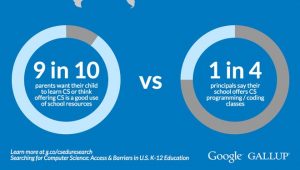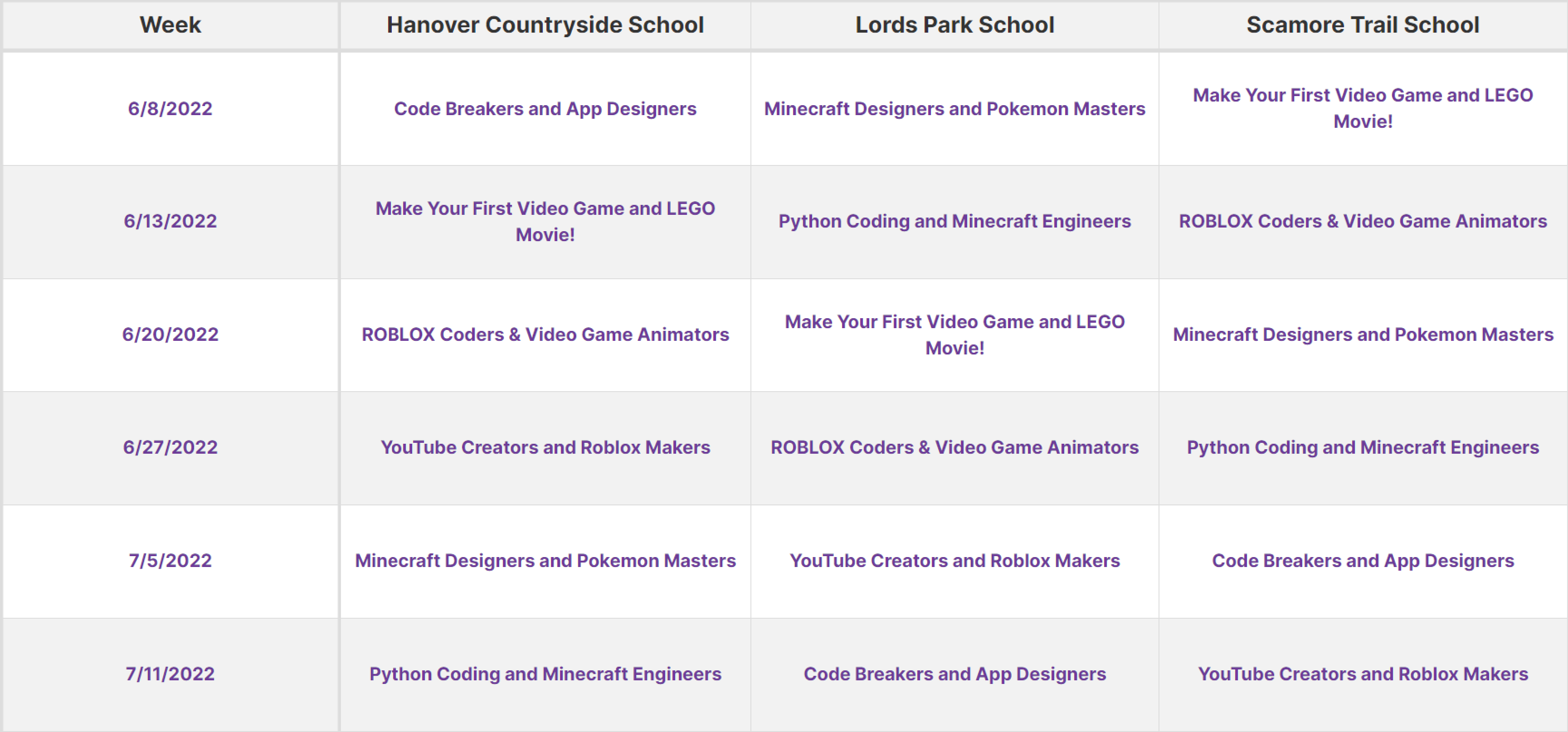Your Child Can Code! Turning Kids from Consumers into Creators

Take a moment to think about your child’s hobbies, their passions. Are they artistic, athletic, skilled in the kitchen? Some gravitate towards musical theater, while others enjoy the thrill of a science experiment. And some don’t really have a passion; they may float between different activities trying to find where they fit.
Now, thinking about those activities listed above, would you ever consider coding and computer science to be a hobby for children? When you think of coding, you’re probably thinking of the complicated mathematical and tech-savvy skills required to do computer programming. Surprisingly, kids of all ages can learn to code. Most elementary-level schools don’t teach computer science, but a recent Gallup poll found about 90% of parents want their child to study it!
Whether a child is artistic or athletic, whether they get A’s or C’s in school…none of that matters when it comes to learning code. Every child can learn the basics of a programming language and bring their imagination to life. Your child can be a creator!
Why Coding?
Problem solving, critical thinking, using logic and mathematical skills are all in high-demand and a huge benefit of coding. Debugging is the process of trial and error in coding which helps kids understand how to learn from their mistakes. A failure in coding is just a part of the natural process and develops problem solving skills. If your child struggles academically, they can still succeed in coding!
Learning to code can actually help children understand how abstract ideas and formulas work and increase math achievement in the classroom. Coding has even been shown to improve literacy performance. This is because learning to code is equivalent to learning a new language. Coding also teaches computational thinking, which helps in the planning and organization of thoughts.
In California, some schools adopted what’s called a C-STEM curriculum which integrates computer science and math for a part of the year in order to close the math achievement gap. More than 200 schools reported back with positive results, including one that resulted in a 94% pass rate using this curriculum opposed to a 61% rate using a normal math curriculum. This is because coding gives students a chance to use math in a real-world setting that helps mathematical concepts stick.
What’s most important is that the opportunities coding presents are limitless. Kids can turn their hobbies into an entire world of their own! If your child loves fashion design, they can make a fashion oriented game in Python where the player gets to arrange their own outfits. If they love soccer or basketball, they can design an app focused on tracking game statistics or designing drills sets. If your child can dream it, they can achieve it with code!
Kids around the world are already proving that coding is not just for adults. A ten year old named Yuma Soerianto has a whopping 5 apps available on the iPhone App Store and a YouTube channel dedicated to teaching others! Another child, nine-year-old Anvitha Vijay, became the youngest to attend Apple’s annual developer conference called WWDC in 2016. Inspired by her little sister, she created an app to help toddlers learn animal names and sounds through basic coding.
Success in coding is possible for anyone and the empowerment and confidence children feel when they get their code just right is what makes it worth all the hard work.
Ways to Get Started in Coding
While there are many great websites out there to help your child start learning the basics of coding like Blockly and Code Monkey, one of the best ways to start your child with a solid coding foundation is through classes and camps! Black Rocket is known for their engaging, fun, and kid-friendly courses that feature live instructors teaching the basics of Python, JavaScript, HTML, CSS, Java, and more! Kids can learn to code their own games and apps through our virtual and in person camps. Click here to read more about our world class coding courses for kids!

